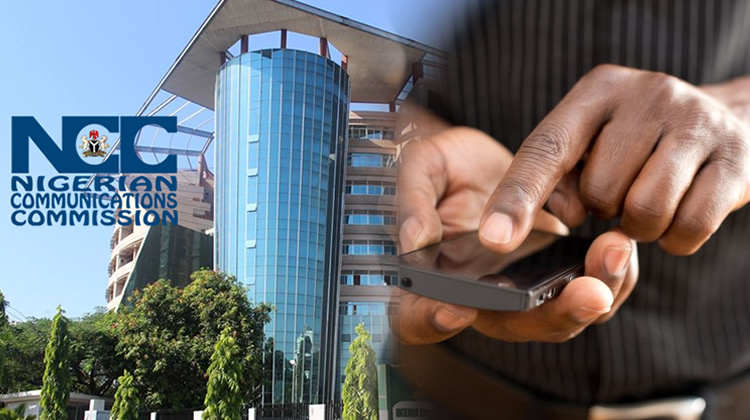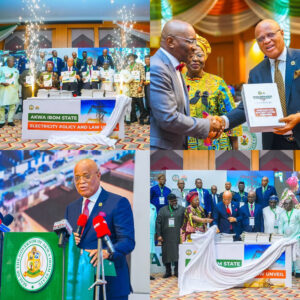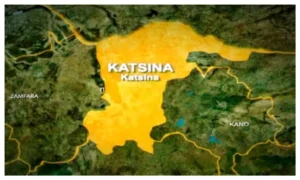
Nigerians, particularly those in the northern region, are expressing outrage over the recent hike in telecom tariffs, describing it as a crushing blow amid worsening economic conditions.
The Nigerian Communications Commission (NCC) recently approved a 50 percent increase in telecom tariffs for service providers, a decision that has drawn widespread condemnation. Many argue that the move, coming at a time of nationwide economic hardship, disproportionately affects those who rely heavily on mobile connectivity for their livelihoods.
For Zainab Idris, a single mother and food vendor in Kano, the tariff hike has been devastating. Every order she takes and every payment she processes relies on mobile data. Now, staying connected costs more than she can afford.
“I use my phone to take orders and do mobile banking. Now I spend twice as much for half the access,” she lamented.
“We’re being punished for being connected,” she added, frustration evident in her voice.
Zainab’s struggle is part of a broader national outcry following the NCC’s decision in January 2025. The increase, driven by demands from telecom operators citing inflation, rising diesel costs, and foreign exchange instability, has forced millions of Nigerians to grapple with the soaring costs of staying online.
Critics accuse the NCC, under its current leadership, of siding with telecom operators at the expense of Nigerian consumers. Many argue that the regulatory body has failed to protect the interests of citizens, prioritizing corporate profits over public welfare.
The impact is being felt across various sectors, from students and small-scale vendors to office workers and rural traders. The cost of 1GB of data, which previously averaged around ₦300, now exceeds ₦500. In a country where over 60 percent of the population lives in multidimensional poverty, the spike is seen as a major setback.
Fatima Yusuf, a final-year student at Bayero University, shared how the hike is disrupting her studies.
“I’m working on my final project and rely heavily on online research,” she said.
“But since the price increased, I’ve had to cut down. Sometimes, I go days without internet. How are we supposed to learn like this?”
Fatima added, “We’re used to adjusting, but this one hurts. Communication is not a luxury—it’s how we live, learn, and earn.”
Telecom operators have defended the increase, citing operational challenges linked to inflation rates above 33 percent and surging energy costs. Although they initially pushed for a 100 percent tariff hike, the NCC settled on a 50 percent adjustment.
However, civil society organizations and consumer rights groups have condemned the timing. The Socio-Economic Rights and Accountability Project (SERAP) recently filed a lawsuit against the NCC and the Federal Government, arguing that the hike violates citizens’ rights to information, education, and communication.
In March, the Nigeria Labour Congress (NLC) led protests across major cities, demanding a reversal of the decision. The NCC, in its response, defended the tariff hike as “inevitable for service continuity,” while hinting at potential relief packages for vulnerable users.
Fadhila Nurudeen, a digital rights activist based in Kano, criticized the decision, saying it undermines Nigeria’s digital development goals.
“The government should be promoting affordable access, not strangling it,” she argued.
“This hike widens the digital divide, especially between urban and rural populations.”
Even small-scale data resellers are not spared.
“People come to buy data, and when they hear the new prices, they just walk away,” said Hajara Isah, who operates a roadside airtime kiosk.
“It’s affecting our own business too,” she added.
As economic challenges collide with rising digital costs, many Nigerians are now rationing their internet usage or reverting to SMS and traditional voice calls. For a country increasingly dependent on digital platforms for education, commerce, and communication, this shift threatens to leave millions disconnected.
Experts warn that if urgent measures are not taken, internet access could soon become a luxury in Nigeria’s growing digital divide.







![[PHOTOS] Arewa Offa, Mustapha Amidat Concludes Skill Acquisition, Exhibition Programme](https://newsbulletin.com.ng/wp-content/uploads/2025/09/IMG-20250920-WA0011-300x300.jpg)